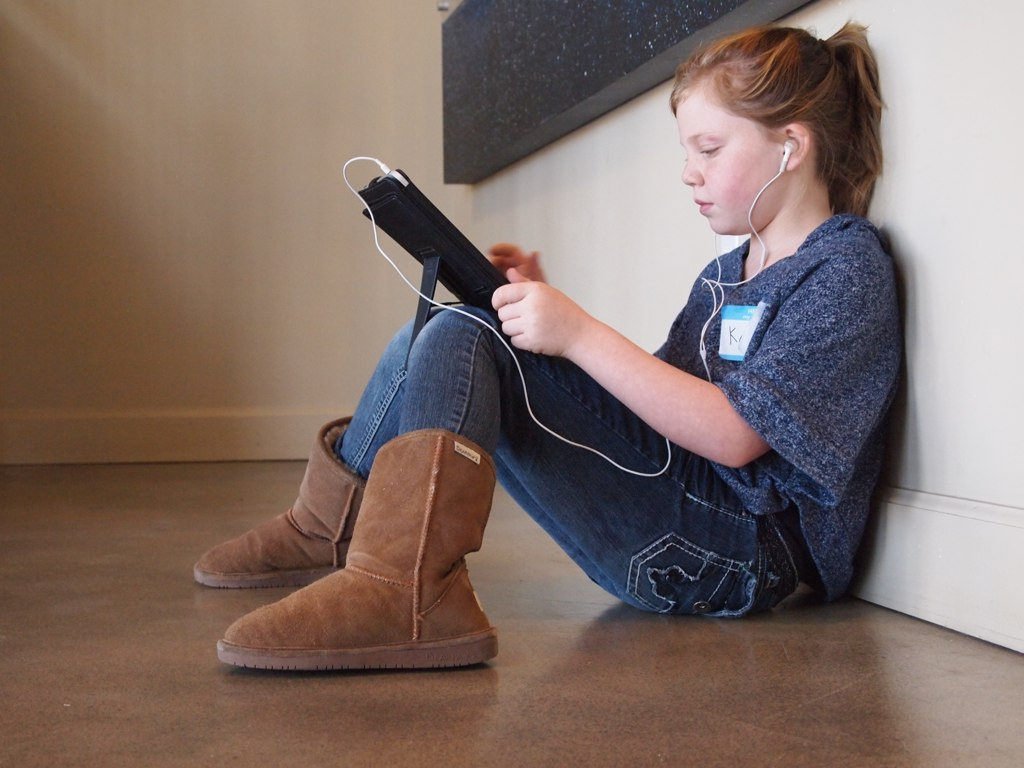How White Educators Harm White Educators

My first year of teaching began in a middle school classroom that had been vacated by three teachers in a single semester. I walked in as a nervous, new teacher worried about the strength of my lesson plans, the setup of the whiteboard, and the arrangement of the desks. As students filtered into class on that first day, I greeted them all at the door with a bright smile and at least four cups of coffee pumping through my veins. The first reply I received was unexpected. Laced with profanity, a young man simply expressed, “you’re not going to last either.”
I was immediately discouraged. It was not the attitude of my students who were openly debating when I would quit, or the assumptions many of them had that I was just another placeholder. I was discouraged by the experiences that had given them valid reason to put their guard up when I was first introduced. I was discouraged by the myriad of White teachers who previously mocked them, disparaged them, and imposed on this group of students their biased notions of classroom structures and curriculum choices.
Before engaging in any classwork, we had to get to a place of shared understanding and community building. We discussed their previous experiences with education and the teachers they confronted over the years. We spoke about the impact of teachers quitting and blaming them (including one who did it in front of them during class time). As a group, we slowly began to dismantle the ideologies of what school is “supposed to be” to give way to what they believed school should be. Instead of ignoring the experiences that had shaped their views on school, they began to expose me to it and open my eyes to the many reasons why they had to remain reserved and cautious with teachers like me.
Eight years have passed and I have only found more reasons for implementing equity pedagogy in the classroom. Each class period has been driven by the narratives and experiences of my students. Class discussions are regularly filled with intense conversations on culture and identity as we wrestle with our own realities in the midst of a standards-driven school system. While there have been a plethora of barriers to implementing this teaching style, I have found support at all levels, both within and outside of the schools that employ me.
- However, there is one barrier that has hurt me most.
- It hits me every day of every year.
- It blocks my success at every path.
- It is the ever-present impact of other White educators.
White educators leave their mark on BIPOC students. They create experiences that lodge in the front of their students’ minds. The damaging remarks, stereotyping, disapproving looks, and color-blindedness of previous educators work to build a wall within them. It becomes common for many students to not be reflected in the curriculum. They adjust to having their names pronounced incorrectly, their word choices being discredited for not being appropriate, their clothing and hair styles being deemed improper, and countless other strikes against their identity. These experiences construct the necessary barriers of cynicism and mistrust that students utilize to function while navigating a predominantly White education landscape.
The pushback on anti-racist trainings in the United States is one of many examples of how students are treated at the hands of the average White teacher, administrator, guidance counselor, and security officer. The White House memo M-20-34 called for the defunding of anti-racist trainings based in Critical Race Theory and it was met with praise from White educators around the country. Their reaction confirmed the fear that I have at the start of each year. There is a pervasive set of beliefs among educators that the act of education is not political, that equality, not equity, is the goal, and that it is better to neglect the identity of our students than it is to challenge our own pedagogy and practice as educators.
White educators make up the bulk of the teaching force, just like white administrators are in the majority for school leaders. The data ensures that most students will interact with White authority figures early and often. With a lack of regard to anti-racist practices and a severe underutilization of methodologies that encourage equity in pedagogy, BIPOC students are often underrepresented and underserved. Whether they face outwardly harmful practices, or micro-aggressions and more covert forms of racism, it is nearly a guarantee that White educators will do damage to their identity throughout their school life.
The most recent years of my career have brought me to teaching seniors in high school. An eye-opening aspect of this grade change is the pre-conceived notions that many students had of me from day one. It is common for me to overhear a kid walk past me on the first day, muttering “here we go again.” I do not begin the year as a neutral, respected educator. I begin each year as a physical representation of a barrier to the success, happiness, and empowerment of my students. It takes weeks, months, even the entire year, to start the process of earning the trust of students who have been jaded by an entire school career of degradation.
Teachers want to focus on learning. However, a majority of my time is spent with students on unlearning:
- Unlearning the fear that I might be out to get them.
- Unlearning the idea that I am looking for an excuse to suspend them.
- Unlearning the expectation of dealing with a White male centered curriculum.
- Unlearning the engraved thought that I want them to fail.
Millions of reasons exist for why White educators should engage early and often in anti-racist, equity-based training and professional development. If you as a White educator have placed your ego above those reasons, consider this one: you are also harming your White colleagues. A lack of understanding of culturally relevant practices seal the fate of every White educator who meets your students in the future. Our professionalism is constantly destroyed in the eyes of our students by teachers who believe content is all that matters in the classroom. Well-meaning White educators who outwardly say (and probably believe) that they care greatly about all of their students, show in their daily actions an ignorance and intolerance for those very same students.
I would love to start a school year as a trusted and respected educator by all of my students. That cannot happen in the same world where White teachers cannot manage to utter a phrase as simple as “Black lives matter.” Our students will never let their guard down to teachers who rally against professional development opportunities designed to improve our skill in educating diverse students. Most of all, our students will never live up to the identity and potential that they carry when our White educators ignore, demean, or outright condemn aspects of them.
It is easy to ignore issues of race and culture by focusing solely on the curriculum and content. It is easy to leave your own biases unchecked and unquestioned. It is easy to produce the typical content without exploring why that content is deemed important and for whom. My question to you, White educators, is this:
Are you content with doing the easy work, or are you ready to do the necessary work for the sake of both your fellow White teachers and BIPOC students?
Author: Dr. Kevin Leichtman is a teacher at the high school and college level in South Florida.




